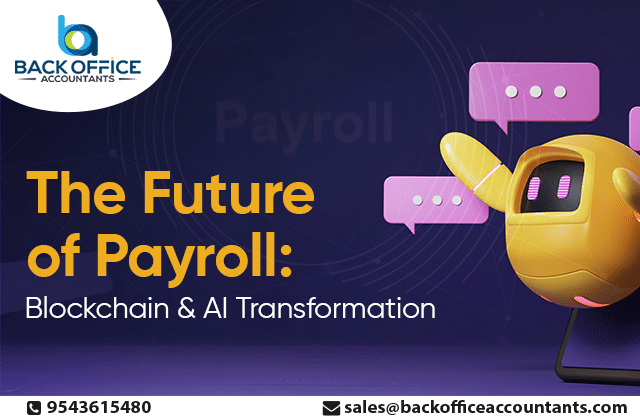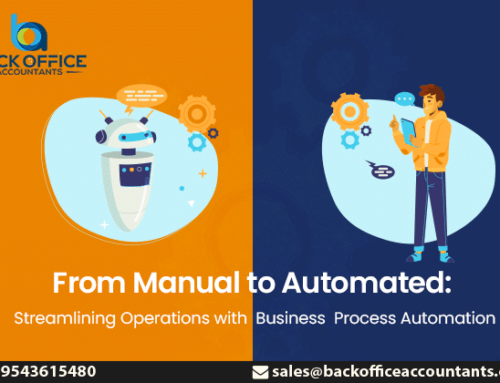Advanced technologies like Blockchain and artificial intelligence (AI) are revolutionizing the payroll industry. These innovations are transforming the way payroll is managed, providing levels of efficiency, security and accuracy that have never been seen before. They are the future of payroll technology. AI Payroll Automation
Hence, what does this mean for businesses and employees? What are these technologies capable of for organizations? In this article, we will learn how Blockchain and AI can change the payroll system and much more.
Blockchain in Payroll Systems – AI Payroll Automation
While blockchain is most popularly associated with cryptocurrencies, it is now being used in strong use cases in payroll systems. Therefore, the payroll transactions in this decentralized technology are transparent and cannot be tampered with, hence secure.
One of the most promising applications of smart contracts is blockchain in payroll systems. These are smart contracts that will automatically release payroll at the end of a working period once certain conditions are met. Manual interferences have been eliminated by automation as well as the cost of administration has been reduced and payments are made as early as possible.
Blockchain makes cross-border payments easier for businesses with employees from different parts of the world. Conventional cross-border payments are usually charged, and it takes a lot of time because of the involvement of third parties. Blockchain solves these challenges by allowing fast and cheap transactions, making the process smooth for employers and employees.
Blockchain systems are also transparent, which creates trust. This helps employees to check the payment records to avoid any conflict due to the discrepancy. At this level, the level of transparency increases employee satisfaction and makes all payroll audits easier for the organizations.
AI Payroll Automation
When combined with payroll automation, AI is one of the key drivers of time-saving and error elimination in payroll management. It also makes things like tax calculations, compliance checks, and data entry much easier, meaning businesses can focus on what they do best [instead of routine administrative work, they focus on their strategic initiatives].
One of the most effective uses of AI is anomaly detection. AI systems use payroll data to detect overpayment, underpayment, or even fraud. Identifying these problems in the initial phases can save organizations a lot of money and ensure they comply with the law.
In addition, AI is useful in predictive analysis, which helps a business estimate payroll costs and prepare for them in advance. It is very useful to do better workforce planning and financial planning because it can predict future trends using historical data. For instance, AI can help seasonal businesses determine how many employees or how much payroll expense they should have at certain times.
It is especially useful in the context of employee experience, too. Modern payroll systems use AI to enable employees to access pay stubs, tax information, and other benefits on their own.. The tools make employees happier and less dependent on the HR departments.
Blockchain and AI Payroll Automation: How Do the Two Technologies Work Together?
The integration of Blockchain and AI creates a powerful synergy of the best qualities of both technologies. Blockchain gives them a safe and transparent environment, while AI brings intelligence and automation to the payroll processes. They build systems that are effective, precise, and flexible to business requirements.
For instance, AI can monitor blockchain transactions in real-time and alert you of any anomaly or fraud. Real-time monitoring of payroll operations helps ensure security and compliance. Like Blockchain, its decentralized nature perfectly complements AI’s data handling capacity, enabling seamless integration and automation of payroll processes across countries and sectors.
Imagine a world where an AI-based payroll system handles employee hours, calculates taxes, and pays employees using smart contracts on the blockchain without any human intervention. A system like this cuts costs, increases accuracy and also guarantees timely payment of employees. This builds trust and confidence.
Consequences for Business and Employees
Blockchain and AI in payroll systems offer many benefits to the business and the employees. These technologies help businesses cut costs, increase efficiency, and avoid mistakes or violations of the law. This efficiency frees up some of the resources that can be used to fund the company’s growth and development.
The same is true for employees. An accurate, timely, payment-friendly experience with improved visibility and availability of self-service options. Furthermore, since Blockchain has a safe framework, data breaches of sensitive payroll data are addressed.
Applications Beyond Payroll
Other related areas that blockchain and AI extend to include accounts payable outsourcing, accounts receivable services, and AI bookkeeping outsourcing for accountants. These technologies can help to do complicated calculations faster and with fewer errors, freeing up the time of back office accountants.
AI-based systems automate invoice processing, flag discrepancies in accounts payable, and recommend ways to improve cash flow. Meanwhile, Blockchain securely records transactions openly, simplifying audits and reducing fraud risks. AI Payroll Automation
Final Overview
Of course, Blockchain and AI have a future in payroll technology. These innovations will change how companies deal with payroll using systems that are faster, more secure, and more efficient. However, the question remains: Are you ready for this change? To know more contact experts like Back Office Accountants.







